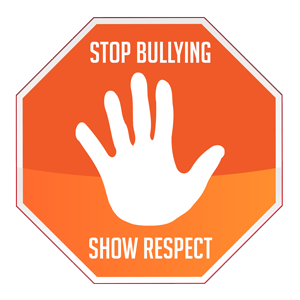Parent Engagement Network Newsletter
Please see below for important information and resources regarding Volunteer Opportunities, Discipline Procedures, Community Health Center Supports, Tips for Supporting Diverse Learners, School-Based IEP/504 Contacts and much more!
The 2025-26 Exceptional Student Education (ESE) Parent Survey is open, takes less time to complete, and FDOE requests your participation!
If your child has an IEP and is receiving ESE services (excluding gifted services), from preschool to grade 12, or if you are a student with an IEP and age 18 or older, you can complete the survey. The Florida Department of Education (FDOE) is seeking parent and guardian input to enhance services under the Individuals with Disabilities Education Act (IDEA). The inforrmation gathered remains anonymous. If you have more than one child with an IEP you can complete more than one survey: FDOE ESE Parent Survey
Your Time. Their Tomorrow
Volunteers are the heart of our schools, bridging the gap between classrooms and community. Every hour you give enriches a student's experience, strengthens school culture, and builds meaningful relationships that last. Whether you read to a child, assist at events, mentor or support a club, your presence matters. To get started, complete the
volunteer application and a background screening (required every 5 years) and join us in crafting a brighter tomorrow for Pasco's students.
Discipline Procedures
The December 2025 Parent Engagement Network presentation highlights key resources related to the Student Code of Conduct, discipline procedures, threat management, and law enforcement involvement for Students with Disabilities. The purpose of this session is to empower families to advocate effectively and partner with schools to ensure safe and inclusive learning environments.
Use the link to acess the presentation and reach out to Charity Edmond, Behavior Support Coordinator, with any questions: Student Code of Conduct Procedures for Students with Disabilities
Community Health Center
The
Chasco K8 Community School is committed to creating a healthier, more resilient community by providing wraparound services that both support families and student success. Our on-site food panty is open every Tuesday from 8:30AM-12:00PM and offers groceries including fresh produce and meat. Our clothing closet helps families in need of shoes, clothing and essential hygienec items. Boys and Girls Club provides after school programming on campus for our grades 6-8. In addition, our partnership with Premier Community Healthcare offers medical, dental, vision and mental health counseling services to help support overall wellness. Please contact Nathan Shocklee,
nshockle@pasco.k12.fl.us, for more information.
The Hudson Community Health and Resource Center offers a variety of services and supports to the community. We offer Mental Health Services (Monday-Friday), Medical Services (Monday-Thursday) and Dental Services (Tuesday). Our food pantry and clothing closet are open on Tuesdays and Thursdays. We also have upcoming events scheduled, as outlined below!
Metropolitan Ministries Holiday Pop Ups: 11AM-2PM
Sunday, December 14th
Sign-Up required
Spring Event on the Hudson PreK-12 Campus 10AM-2PM
Saturday, March 14th
Open to all: No sign-up needed
Please contact Hudson Community Health and Resource Center at (352) 834-1751 for more information or visit the web page:
Hudson Community Health and Resource Center to learn more about this community resource and to access the Calendar of Events.
Preparing for a Successful Transition to the Next Grade Level
As your child prepares to move into the next grade level, Pasco County Schools is committed to ensuring a smooth and supportive transition for all students receiving Exceptional Student Education (ESE) services and/or accommodations through a Section 504 Plan. Here are key steps and reminders to help families navigate this important time:
- Review your child's current plan: Ensure the IEP or 504 Plan is up to date and reflects current needs. If you have any questions or anticipate changes, contact your school's ESE teacher or 504 coordinator.
- Stay informed about school changes: Transitions may include moving to a new school (e.g. elementary to middle, middle to high). Learn about the new school's support services, staff contacts, and any orientation events.
- Communicate early and often: Reach out to your child's school team with any concerns or updates. Early communication helps ensure services are in place from day one.
- Know your rights and resources: Pasco County Schools provides guidance and support for navigating ESE and 504 services.
We look forward to partnering with you to support your child's continued growth and success. If you have questions or need assistance, please contact your school's Student Support Specialist (SSS).
Unlocking Your Child's Potential: Supporting Diverse Learners
Collaborate with the IEP/504 team
Ensure the Individualied Education Plan (IEP) includes specific accommodations and goals tailored to your child's strengths and challenges. Ensure 504 Plans have specific accommodations tailored to strengths and challenges.
Use Visual Supports and Schedules
Visual aids like picture schedules, task charts, and social stories can help with transitions, routines and understanding expectations.
Clear and Consistent Communication
Stakeholders can use direct, concrete language and check for understanding regularly. Visual cues and written instructions can reinforce verbal communication.
Celebrate Strengths and Interests
Incorporate your child's passions into activities to boost engagement and confidence.
Student Support Specialist
Pasco County Schools provides a district Student Support Specialist (SSS) at each school to support families with ESE and 504 concerns, as well as Child Find obligations. The SSS is a parent liaison for questions regarding procedures, evaluations, individual education plans, educational plans and 504 Plans. Find out how to contact a
Student Support Specialist!
Resources for Families
Supporting Families: The Florida Diagnostic and Learning Resources System (FDLRS) is dedicated to helping students with exceptional needs reach their full potential. Visit this site to find out about FDLRS Family Help Desk, Learning Opportunities and more!
Parent involvement is key to student succcess!
Exceptional Student Education (ESE) services include specially designed instruction to meet the unique needs of the child. District and school-based staff can answer questions about ESE and explain how parents can participate in their child's education.
Find out more about a variety of local, state and nationwide agencies engaged in supporting and strengthening communities!









